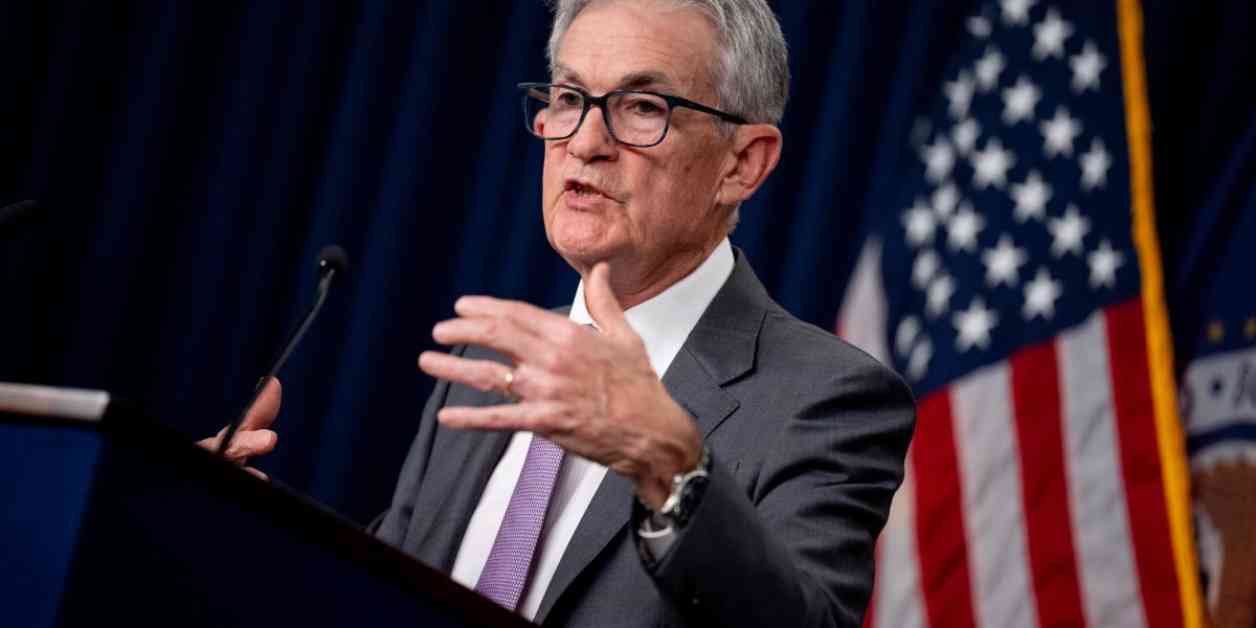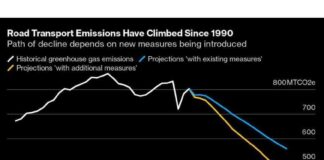Federal Reserve Chair Jerome Powell recently met with a group of big-bank CEOs in a closed-door meeting to discuss the Biden administration’s capital proposal and prevent potential legal disputes. The meeting, which took place last month and was hosted by the Financial Services Forum, brought together top bank executives, including Jamie Dimon from JPMorgan Chase & Co. and Jane Fraser from Citigroup Inc.
During the meeting, Powell emphasized the importance of collaboration between the banks and the Fed to avoid a prolonged legal battle over the proposed capital requirements. He assured the CEOs that the public would have the opportunity to provide input on key changes to the plan, signaling a commitment to transparency and stakeholder engagement.
While it is not uncommon for Powell to engage with industry leaders, this meeting was significant in demonstrating his efforts to garner consensus among the banks and Fed governors in order to move the capital proposal forward. The proposed overhaul, a response to the 2008 global financial crisis, has been in development for over a decade and has faced resistance from the banking industry.
One of the key concerns raised during the meeting was the potential watering down of the original proposal. The Fed had presented a weaker version of the bank-capital overhaul to other regulators, raising alarms among some agency officials. This led to speculation about whether the Fed would compromise too much on the proposal, known as the Basel III endgame, in response to industry pressure.
Critics, such as Jeremy Kress, a former Fed bank-policy attorney, expressed concerns that Powell’s approach could give undue influence to the banks and undermine the regulatory process. However, others, like Thomas Hoenig, a former president of the Federal Reserve Bank of Kansas City, argued that the Fed must adhere to statutory requirements in setting major banking policies, ensuring that the intended outcomes are achieved.
The meeting also drew attention to the potential for regulatory discord among the agencies involved in the proposal. The original draft, released in July 2023 by the Fed, FDIC, and OCC, called for a substantial increase in the capital that banks must hold. However, subsequent revisions suggested a much lower increase, sparking concerns about the impact on big banks with significant trading operations.
Powell reassured lawmakers that progress had been made on the proposal but emphasized that no final decision had been reached. He underscored the importance of aligning with other major jurisdictions, such as the European Union, which was considering a 10% capital hike, and the UK, with an average increase of about 3%. Powell’s comments indicated a commitment to ensuring a level playing field for banks across different regions.
In light of potential legal challenges from the industry, the Fed urged banks to address any issues proactively to avoid litigation. The Bank Policy Institute had already retained litigator Eugene Scalia to represent their interests in case significant changes were made to the final rule. Meanwhile, industry groups like the Financial Services Forum and the U.S. Chamber of Commerce raised concerns about the regulatory process violating the Administrative Procedure Act.
The meeting underscored the complexity and challenges involved in finalizing the capital proposal, with various stakeholders vying for their interests to be represented. As the Fed navigates these competing demands, it remains crucial for the regulatory process to uphold transparency, accountability, and the broader public interest.
Challenges in the Regulatory Process
The meeting between Jerome Powell and bank CEOs highlighted the challenges inherent in the regulatory process, particularly when it comes to setting capital requirements for large financial institutions. The proposed overhaul, aimed at strengthening the financial system and mitigating risks, has been met with resistance from the industry, raising concerns about the potential impact on banks’ operations and profitability.
Importance of Stakeholder Engagement
Stakeholder engagement is crucial in the development of regulatory policies that affect a wide range of market participants. By involving industry leaders, regulators can gain valuable insights into the potential implications of proposed changes and address concerns early on in the process. The meeting between Powell and bank CEOs exemplified the importance of open dialogue and collaboration in reaching consensus on complex regulatory issues.
Ensuring Regulatory Compliance
Regulatory compliance is essential for maintaining the stability and integrity of the financial system. As regulatory authorities work to finalize the capital proposal, they must ensure that the process adheres to legal requirements and best practices. By seeking input from industry stakeholders and the public, regulators can enhance the transparency and effectiveness of the regulatory framework, ultimately benefiting the broader economy.






















